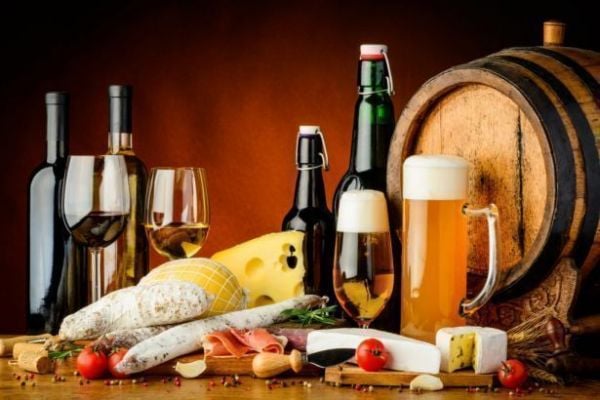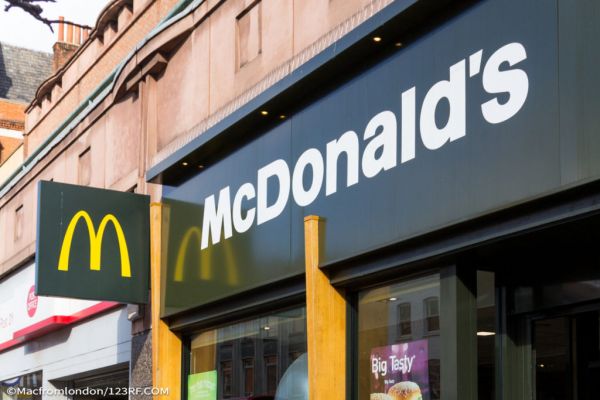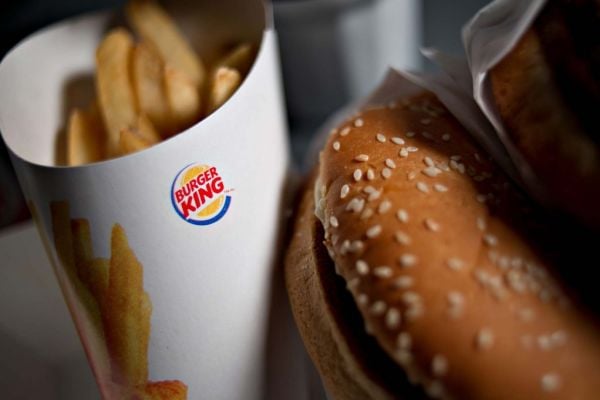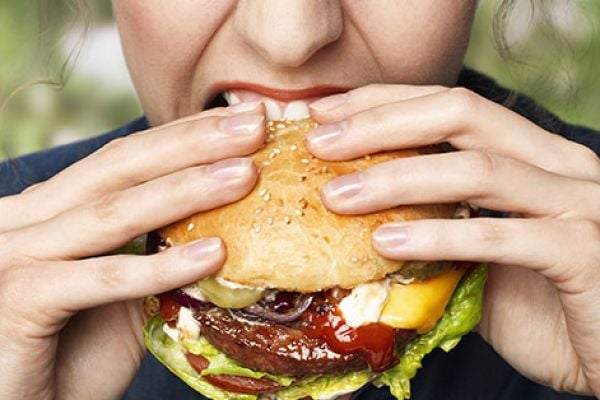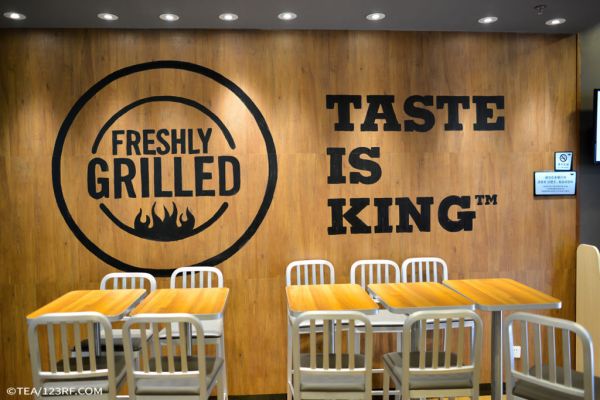Hospitality Ireland presents a round-up of global food, drinks and hospitality venue news.
Investors Push Food And Drink Companies, Governments Over 'Nutrition Crisis'
Investors managing $12.4 trillion in assets on Tuesday December 7 called for governments and companies to accelerate the shift to promoting healthier food and drink to help fix what they described as a "global nutrition crisis".
Poor-quality diets are a leading cause of death and disease and carry individual, societal and economic costs that impact the value of their holdings, 53 investors said in a pledge at the Tokyo Nutrition for Growth Summit 2021.
The investors, including PIMCO and UBS Asset Management, urged policymakers to use fiscal and regulatory measures to help support healthy packaged food and do more to meet the nutrition targets laid out by the World Health Organisation.
Food and drink companies, meanwhile, were called on to commit to three actions, including reporting annually on the percentage of their sales generated by healthy products and their share of the overall product mix.
The companies should also use an independently developed system to define what constitutes a healthy product, and adopt the commitments laid out in the document 'Investor Expectations on Nutrition, Diets and Health' produced by the investors with the support of non-profit the Access to Nutrition Initiative.
The investors said they would engage with the 20 listed companies in the ATNI Global Index 2021, including Nestle and Unilever, as appropriate, or ask fund managers which invest on their behalf to do so.
They said they would share information about their talks with companies through quarterly or annual reports and use the information to guide their investment decisions.
"The investor pledge illustrates the urgent action required from companies, investors and governments to accelerate progress on global nutrition," said Frank Wagemans, Senior Engagement Specialist at Achmea Investment Management.
"Investors understand not only the macroeconomic drag posed by nutrition, but also the profound societal impact of malnutrition which we see as a financial and societal material risk."
The costs of poor nutrition are estimated to amount to around 5% of global income a year, or around $3.5 trillion, ATNI said.
Constellation To Build Major Brewery In Southeastern Mexico - Sources
U.S. brewer Constellation Brands is going to install a major plant in southeastern Mexico following the cancellation of a brewery it was building on the country's northern border, two people familiar with the matter said Tuesday December 7.
Earlier, the Wall Street Journal reported the investment would be worth some $1.3 billion, and the news is a boost for the government of leftist President Andres Manuel Lopez Obrador, who has had an often combative relationship with business.
The sources confirmed the newspaper's report, which would herald one of the biggest single outlays of foreign direct investment since Lopez Obrador took office three years ago.
A spokesperson for Constellation Brands said the company had been working with Mexican officials on plans to meet its long-term brewing capacity needs in the southeastern part of the country where there is plenty of water and labor.
"Discussions have been productive and remain ongoing," the spokesperson said.
The company last year had to abandon a largely completed brewery worth more than $1 billion it was building in the arid border city of Mexicali after local residents rejected it in a contentious referendum centering on water usage.
Lopez Obrador had encouraged the referendum, and he said earlier this year that Constellation Brands had agreed to build a new plant in Mexico's poorer southeast, but gave no details.
One of the sources said the plant would likely be built either in the Gulf state of Veracruz or in the neighboring region of Tabasco, the home state of Lopez Obrador.
Hilton Plans To Boost Saudi Hotel Portfolio, Says Minister
Hilton plans to increase the number of its hotels in Saudi Arabia from 15 to 75 within the next five years, the Saudi tourism minister said on Tuesday December 7.
The announcement came during a meeting between minister Ahmed al-Khatib and the Chief Executive of Hilton Worldwide Group, Chris Nassetta.
Hilton's plans will provide "more than 10,000 new jobs", state news agency SPA quoted the minister as saying during the meeting.
He added on his Twitter account that "private sector partnerships contribute to the recovery of the tourism sector" and that working with partners such as Hilton is "a key part of our plans to attract 100 million visits, develop our tourism destinations and increase the contribution of tourism to GDP to 10% by 2030".
Uber, Deliveroo Could Be Hit By Draft EU Rules For Gig Workers
Uber, Deliveroo and other online platform companies may have to reclassify some of their workers as employees under draft European Union rules meant to boost their social rights, according to an EU document seen by Reuters.
The proposal from the European Commission, the first in the world, comes as countries and courts around Europe try to address shortcomings in the gig economy, with judges in most cases backing the rights of workers to labour rights available to those working in brick-and-mortar shops.
The document estimates some 15 companies and between 1.7 million to 4.1 million workers out of 28 million could be affected by the rules, which set out five criteria for determining employees.
Gig economy workers could be classifed as employees if online platforms determine their pay, set conduct and appearance standards, supervise the performance of work through electronic means, restrict their ability to choose their working hours or tasks, and prevent them from working for third parties.
A platform company is considered an employer if it meets two of the criteria, the paper said.
The rules will also require ride-hailing, food delivery apps and other companies to provide information to employees on how their algorithms are used to monitor and evaluate them as well as for allocation of tasks and setting of fees. Employees can ask for compensation for breaches.
The rules place the burden on online platforms to provide evidence that these do not apply to them. They can also challenge their reclassification either via an administrative process or in a court.
EU countries could see an annual boost of between 1.6 billion and 4 billion euros in tax contributions from reclassified employees, the paper said.
The draft rules will need to be thrashed out with EU member states and EU lawmakers before they can be adopted, with the Commission estimating a 2025 time frame.
Sanctions for non-compliance, which can include fines, will be set by EU countries while national authorities which fail to put in place the necessary measures can face legal action by the Commission.
In a series of setbacks for online platforms, Britain's Supreme Court ruled in February that Uber drivers are entitled to workers' rights, such as the minimum wage, while a Spanish court said last year riders for Barcelona-based food delivery app Glovo were employees, not freelancers.
Trade unions say the gig economy is exploitative while companies say the business model gives workers flexibility.
Estonian ride-sharing and food delivery startup Bolt said the draft rules could result in job losses. "This will lead to one out of two drivers losing their job, which is close to at least 140,000 people across the EU," said Aurelien Pozzana, head of Public Policy Western Europe at Bolt.
Deliveroo voiced the same concerns. "These proposals will increase uncertainty and will be better for lawyers than self-employed platform workers," a spokesperson said.
Coffee Crisis In Central America Fuels Record Exodus North
The four sons of María Bonilla and Esteban Funes all embarked on the treacherous journey north, one of them aged 10, preferring the life of an unauthorized migrant in America to a coffee farmer in Central America.
"If I didn't have my mom, I would also go to the U.S. It's better there. Here, no one is solvent," said 40-year-old Bonilla, who's still trying to beat the odds and turn a profit at her family farm in El Laurel, northeast Honduras.
Coffee doesn't pay for many of the hundreds of thousands of Central American farmers who produce the delicate arabica beans for the world's finest grounds. Increasingly, they are giving up, becoming part of a broader migrant flow to the U.S.-Mexico border that U.S. data shows has hit a record high this year.
Francisca Hernández, 48, told Reuters that about a tenth of the 1,000 coffee farmers in her hamlet of La Laguneta in southern Guatemala had left this year for the United States. They included her 23-year-old son who was arrested in Mexico while trying get to the U.S. border despite having paid $10,000 to a coyote, or people smuggler.
He eventually made it across the border in February this year, and now works in a restaurant in Ohio, sending about $300 a month back home.
Migrant surges have occurred periodically from parts of Central America as fortunes fluctuated in the coffee sector, which almost 5 million people in the region - roughly 10% - rely on to survive, according to the SICA inter-governmental group.
Yet this year has been particularly ruinous, according to interviews with about a dozen farmers across the region, the heads of one regional and three national coffee institutes plus an executive at a U.S.-based international coffee association.
Farmers who had been racking up losses and debts for several years from falling world prices and the loss of business to Brazil, have now been swamped by a devastating resurgence of "Roya", or coffee leaf rust disease.
The fungal pathogen has been revived by the intense humidity brought by the hurricanes Eta and Iota which ripped through Central America in late 2020, destroying crops and displacing hundreds of thousands of people.
"When coffee is not doing well, that's when you see big migrations from Honduras, El Salvador, Guatemala, Nicaragua," said René León-Gómez, executive secretary of PROMECAFE, a regional research network formed by the national coffee institutes of Central America.
Production in the region, where labor-intensive hand-picking of coffee is a way of life for many, has dropped by 10% since late 2017 and is expected to fall further in the season ahead. This means the global coffee market will become more dependent on mass, mechanized producers like Brazil, and increasingly vulnerable to price spikes if extreme weather hits the country's crops.
The decision of farmers to migrate north is a last resort, León-Gómez said. They have been producing at a loss for years and often also working on larger farms to make ends meet, he added.
"They're killing themselves. That's the thing."
U.S. Customs and Border Protection (CBP) say they made 1.7 million apprehensions at the border with Mexico in the last fiscal year which ended on Sept. 30, the highest number ever recorded. That was double the level in 2019 and more than four times the number seen last year when COVID-19 lockdowns were in place.
The CBP does not break down migrants by job type, though the most recent migration data given exclusively to Reuters by the Honduran coffee institute (IHCAFE) gives some indication of the numbers involved.
The institute surveyed 990 Honduran coffee farmers and found that in three popular migration months in 2019 - May, June and July - 5.4% said at least one member of their family had left for the United States.
If that was replicated across the country's coffee farming sector, the number of migrants would equal almost 6,000 in those months alone - equivalent to 6% of all unauthorized Hondurans seeking to cross the U.S.-Mexico border during that period, according to U.S. border data.
The survey did not capture whole families that migrated so the true figure could be higher.
Honduran authorities do not have migration figures for this year, though anecdotal reports from farmers and coffee authorities across Central America suggest a similar, if not higher, proportion of this year's migrants are coffee farmers.
Bonilla said almost all the 55 or so coffee-farming families in El Laurel, in the state of Olancho, have seen members migrate over the past four years, while about 10 entire families have abandoned their farms altogether and headed north.
The CBP apprehensions data does not cover people who succeed in crossing the border illegally.
This group includes Hernández' son and Bonilla's four sons, who have all set off northwards since 2018 in search of a better life.
Hand-picking coffee has been a way of life for centuries in poor, mountainous parts of Central America, in areas too steep, thin-soiled or forested to grow much else. The region produces about 15% of the world's arabica, the smooth-flavored beans favored over the rougher robusta by many coffee connoisseurs.
Yet output has plunged 10% in the four years since October 2017, industry data shows, as farmers accumulated losses amid falling world coffee prices. Production is expected to fall another 3% in the current 2021/22 season, despite robust global demand and prices, industry data shows.
Prices recovered in the middle of this year due to frost and drought in Brazil and COVID-related logistics snarls, and some farmers were able to break even for the 2020/21 season that ended on Sept. 30.
Yet the farmers and officials interviewed said that, with output still falling in Central America because of the resurgent Roya disease, making a living from farming coffee will remain a struggle.
Output is just as important as price in determining profits, because it lowers costs by increasing economies of scale for inputs like seedlings, fertilizer and pesticides.
Roya first broke out in the region in 2012, and by 2014, over half of the coffee crops had been affected, before it was largely brought under control.
The humidity brought by the two hurricanes of 2020, which themselves wreaked $3.3 billion worth of damage to regional economies, boosted the prevalence of the disease from low single digit percentages of coffee plants in the 2019/20 season to 15-25% in 2020/21, according to industry data.
Eugenio Bonilla, a 56-year-old coffee farmer from El Laurel and brother of Maria, said his production nearly halved in the 2020/21 season, mostly because of Roya.
"It's useless that coffee prices have been improving if the trees are not in good condition," he said.
Eugenio said some farmers in his hamlet had suffered eight years of losses.
Their margins are razor-thin, with around half the global coffee price going to middlemen.
When world coffee prices averaged $1.41 per lb in 2019/20, for example, Bonilla said he and his fellow farmers received just 15 lempiras ($0.6238) per lb of coffee that cost them around 20 lempiras ($0.8317) to produce.
Several coffee farmers in Central America spoke of frightening debt spirals.
"They start selling their things," said José Magaña, 60, a farmer from the state of Santa Ana in El Salvador. "If they have a couple of oxen, in the case of small coffee growers, they sell it. If someone is a medium-sized coffee grower, he sells a house, sells other things to be able to work the farms."
Carlos Landaverde's farm in Santa Ana was seized by the bank earlier this year. The 44-year-old said he was undeterred by the prospective perils of migrating with his family.
"It doesn't matter," he said. "It's the only way."
McDonald's Offers Low-Cost Loans To Attract More Diverse Franchisees
McDonald's Corp will provide $250 million of low-cost, short-term loans over five years in the United States as part of an effort to boost diversity among its franchisees.
The Chicago-based company also said it will increase its franchisee recruiting and development efforts globally as it seeks to draw new operators from underrepresented backgrounds.
The burger chain has come under fire from current and former Black U.S. franchisees, who have filed lawsuits claiming they were steered to underperforming stores in low-income areas.
McDonald's has denied treating Black owners differently from other owners, and has repeatedly pledged its commitment to diversity and inclusion.
Last week, a U.S. judge threw out a $10 billion lawsuit by the media entrepreneur Byron Allen, who accused McDonald's of racial discrimination for not advertising with Black-owned media.
This year, the fast-food chain pledged to increase national ad spending with Black-owned media, tied executive bonuses to diversity goals, released workforce demographic details for the first time and launched an effort to increase diversity among its suppliers.
McDonald's and other companies laid out broad new diversity goals amid a national reckoning over race prompted by the May 2020 murder of George Floyd, a Black man, by a Minneapolis police officer.
McDonald's restaurants are so expensive to buy that people from disadvantaged backgrounds often struggle to access the capital they need to own one.
Normally, McDonald's requires franchisees to have at least $500,000 of liquid assets before they can even enter the applicant program. The total investment for a traditional location ranges from $1 million to just over $2.2 million.
People from historically underrepresented groups, including Asian, Black and Hispanic, made up nearly 30% of all U.S. franchisees in 2020, the company said. Women also comprised nearly 30% of franchisees.
News by Reuters, edited by Hospitality Ireland. Click subscribe to sign up for the Hospitality Ireland print edition.
